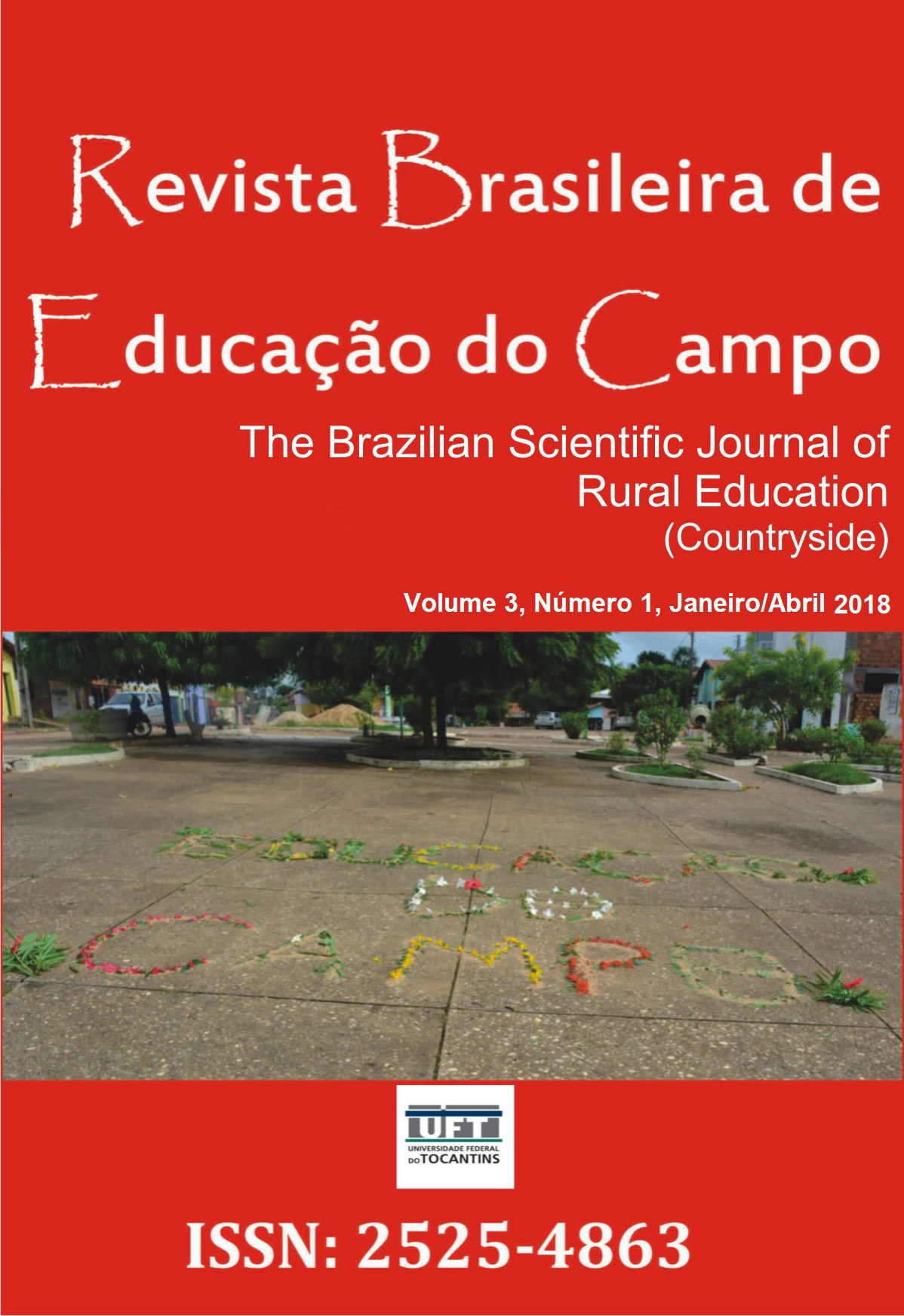The time village: building a new pedagogical practice
DOI :
https://doi.org/10.20873/uft.2525-4863.2018v3n1p57Résumé
ABSTRACT: This work seeks to dialogue with the decolonial thinking in education from the experience of the Technical Course in Agroecology of the Rural Campus of Marabá, Federal Institute of Pará. In this course the formative itinerary is constituted by two study times: Time School and Time Village, characterized as "pedagogic alternation". This logic is part of the study of "concrete" reality, enabling students to articulate traditional and technical-scientific knowledge related to political, historical, and natural dimensions. Our pedagogical strategy adopted in the CTAI approximates in part the proposal of decolonial education and the village time was central in the strategy of thinking and rethinking forms of education "other" those of modernity.
Téléchargements
Références
Araújo, W., & Ribeiro Jr, R. (2016). Convergências entre a pesquisa agroecológica e a pesquisa socioantropológica e contribuições dessas abordagens de pesquisa na construção curricular. Revista Lugares de Educação, 6(12), 139-157.
Arroyo, M. (2014). Outros sujeitos, outras pedagogias. Petrópolis: Vozes.
Borda, O. F. (Org.). (1982). Aspectos teóricos da pesquisa participante: considerações sobre o significado e o papel das ciências na participação popular. São Paulo: Brasiliense.
Bourdieu, P. (2005). Economia das trocas simbólicas. São Paulo: Editora Perspectiva.
Freire, P. (Org.). (1982). Criando Métodos de Pesquisa Alternativa: aprendendo a fazê-la melhor através da ação. São Paulo: Brasiliense.
IFPA/CRMB. (2010). Projeto Político Pedagógico do Campus Rural de Marabá.
IFPA/CRMB. (2011). Projeto Político Pedagógico: Curso Técnico em Agroecologia Integrado ao Ensino Médio dos Povos Indígenas do Sudeste Paraense.
IFPA/CRMB. (2013). Relatório de Tempo Aldeia do Curso Técnico em Agroecologia Integrado ao Ensino Médio dos Povos Indígenas do Sudeste Paraense.
Lander, E. (Org.). (2005) A colonialidade do saber: eurocentrismo e ciências sociais: perspectivas latino-americanas. Buenos Aires: CLACSO.
Laraia, R., & Damatta, R. (1967). Índios e castanheiros: a empresa extrativa e os índios no médio Tocantins. São Paulo: Difusão Europeia do Livro.
Mignolo, W. D. (2003). Histórias locais/ projetos globais: colonialidade, saberes subalternos e pensamento liminar. Belo Horizonte: Ed. UFMG.
______ (2008). Desobediência epistêmica: a opção descolonial e o significado de identidade em política. Cadernos de Letras da UFF. Dossiê: Literatura, língua e identidade, 34, 287-324.
Quijano, A. (1997). Colonialidad del poder, cultura y conocimiento en América Latina. Anuário Mariateguiano, 9(9).
Santos, B. S. (2005). Para um novo senso comum: a ciência, o direito e a política na transição paradigmática. São Paulo: Cortez.
______ (2010). Descolonizar el saber, reinventar el poder. Montevideo: Ediciones Trilce.
Silva, L. (1912). As experiências de jovens do Campo: alternância ou alternâncias? Curitiba.
Stuani, G. M. A. (2010). Construção Curricular Crítica no Ensino de Ciências Naturais e suas implicações na prática docente. (Dissertação de Mestrado) Universidade Federal de Santa Catarina, Florianópolis.
Téléchargements
Publié-e
Comment citer
Numéro
Rubrique
Licence
Proposal for Copyright Notice Creative Commons
1. Policy Proposal to Open Access Journals
Authors who publish with this journal agree to the following terms:
A. Authors retain copyright and grant the journal right of first publication with the work simultaneously licensed under the Creative Commons Attribution License that allows sharing the work with recognition of its initial publication in this journal.
B. Authors are able to take on additional contracts separately, non-exclusive distribution of the version of the paper published in this journal (ex .: publish in institutional repository or as a book), with an acknowledgment of its initial publication in this journal.
C. Authors are permitted and encouraged to post their work online (eg .: in institutional repositories or on their website) at any point before or during the editorial process, as it can lead to productive exchanges, as well as increase the impact and the citation of published work (See the Effect of Open Access).














